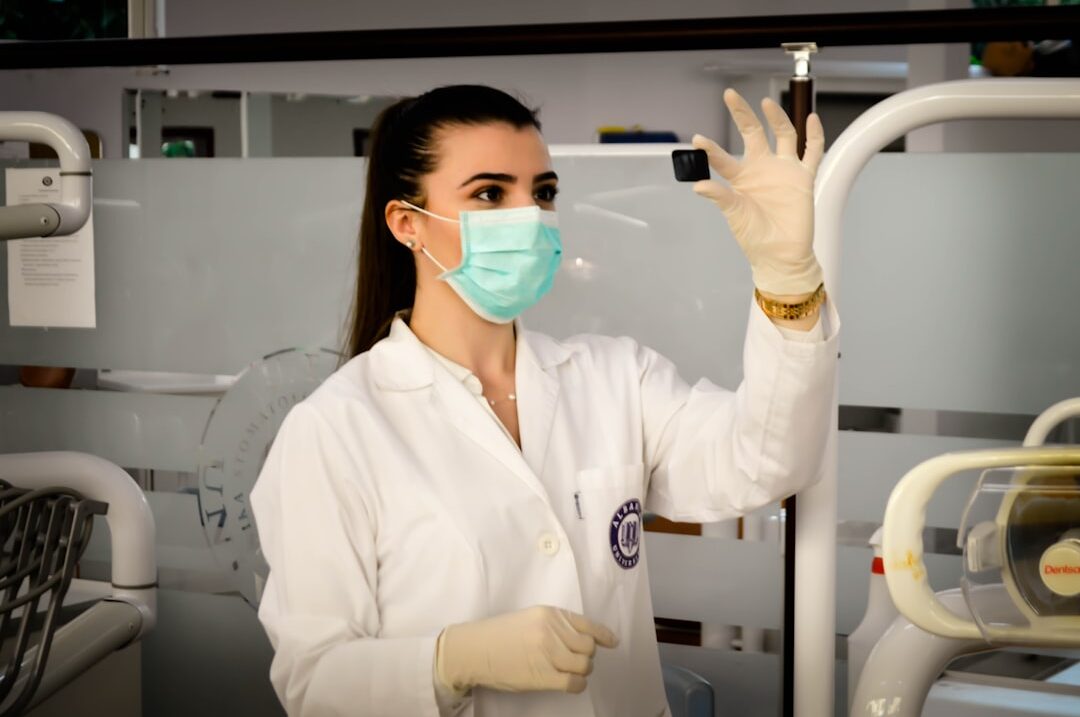Healthcare IT Interview Questions 2025: Merge Technology & Patient Care (Expert Guide)


Ace Your Next Healthcare IT Interview with Huru 🚀
Supercharge your interview prep with unlimited AI-powered practice on Huru. Get instant, actionable feedback on your answers and communication skills—start for free and build confidence today!
Why Healthcare IT Interview Questions Matter in 2025
Healthcare IT is no longer just about maintaining servers and software. In 2025, it’s about enabling safer, smarter, and more compassionate patient care through seamless tech integration. Employers now seek professionals who understand not just the latest healthcare technologies—like AI-driven clinical decision tools, EHR interoperability, and cybersecurity—but also the real-world impact these systems have on both patients and providers.
Understanding what you’ll be asked and how to demonstrate both your technical and patient-centric skills is crucial for landing top roles in this sector.
💡 Key Takeaway
Healthcare IT interviews now require a blend of technical know-how, understanding of patient outcomes, and the soft skills needed to drive digital transformation in clinical settings.
Core Topics: What Drives Healthcare IT Interviews?
- Electronic Health Records (EHR) & Data Interoperability: Integration, migration, and maintenance skills.
- AI and Predictive Analytics: Implementing tools that support clinical decision-making.
- Cybersecurity & Compliance: Protecting patient privacy, handling incidents, and meeting regulations.
- Project Management: Leading multi-disciplinary teams and managing technical deployments.
- Patient-Centric Digital Tools: Telehealth, patient portals, and mobile health apps.
- Collaboration with Clinical Teams: Training, support, and user adoption.
- Regulatory Trends: Adapting to new data protection and healthcare legislation.
💡 Key Takeaway
Prepare for scenario-based questions that reveal how you merge innovative technology with tangible improvements in patient care, data security, and teamwork.
Scenario-Based Questions: Where Tech Meets Patient Stories
Interviewers want more than textbook answers—they want to know how you’d respond in real clinical environments. Consider these high-impact scenario questions:
- How would you implement an EHR migration with zero downtime for critical departments?
- Describe a time you collaborated with clinicians to troubleshoot a system impacting patient care.
- What steps would you take to recover from a ransomware attack in a hospital network?
- How would you train multi-generational staff on a new patient portal?
- Explain a situation where your IT intervention directly improved patient safety or outcomes.
These questions measure your ability to balance technical rigor with empathy and adaptability. Practice out loud using Huru’s AI interview simulator to get instant, personalized feedback on scenario responses.

Behavioral & Soft Skill Questions: Beyond Tech
Technical knowledge is vital, but your ability to communicate, influence, and navigate change is equally scrutinized. Expect behavioral questions like:
- Tell us about a time you had to advocate for IT system changes with resistant clinical staff.
- How do you prioritize competing requests from different hospital departments?
- Describe your approach to supporting staff during a stressful system outage.
- How do you ensure clear, jargon-free communication between IT and non-technical stakeholders?
- Have you ever led a team through a major regulatory compliance change? What did you learn?
💡 Key Takeaway
Demonstrate your value as a bridge between tech and care—showcase stories where your interpersonal skills led to digital success and improved patient outcomes.
Technical Deep Dive: Health IT Trends for 2025
Interviewers are looking for candidates who are ahead of the curve. Deepen your prep with questions such as:
- How do you integrate AI-driven clinical decision support tools into existing hospital workflows?
- Describe your experience with blockchain for securing patient data.
- What strategies do you use to ensure end-to-end interoperability between disparate health IT systems?
- How do you evaluate and select vendors for telehealth platforms?
- Can you walk us through your process for managing change during a system-wide IT upgrade?
Staying current on new tools and being able to articulate their real impact on care delivery will set you apart. Leverage these healthcare consultant interview insights to broaden your perspective.
Compliance & Security: Navigating Privacy in 2025
Healthcare IT pros are now guardians of some of the world’s most sensitive data. Expect in-depth questions including:
- How do you stay up-to-date with HIPAA and emerging data privacy laws?
- Describe your process for mitigating and reporting a data breach.
- What are your top priorities when designing secure healthcare networks?
- How do you educate staff on best practices for data security?
- What’s your approach to balancing patient access and data protection?
Show that you’re both tech-savvy and compliance-oriented. For more on overcoming professional challenges, check out this guide on learning from mistakes in interviews.
💡 Key Takeaway
Regulatory knowledge is non-negotiable. Be ready to discuss how you keep skills and processes current—and how you lead others in compliance.
Standout Answers: How to Articulate Your Impact
Generic answers won’t cut it. Employers want to hear about your influence in measurable terms. Craft responses that highlight:
- Quantified improvements (e.g., “Reduced system downtime by 40%, enabling uninterrupted care for 300+ patients daily.”)
- Direct impacts on patient safety and satisfaction.
- Cross-functional collaboration success stories.
- How your innovations solved real hospital pain points.
- Lessons learned from setbacks or failed implementations.
Practice these with Huru’s unlimited AI interview practice to sharpen your storytelling and confidence.
💡 Key Takeaway
Quantify your impact whenever possible—numbers and outcomes make your expertise memorable.
Practice with Realism: Video Guide for Healthcare IT Interviews
Visual learning makes interview prep more effective. Record and review your answers using Huru’s AI video practice tool for even more actionable feedback.
FAQs: Healthcare IT Interview Questions (2025)
Q: What technical skills are most in demand for Healthcare IT in 2025?
A: Employers prioritize experience with EHRs, interoperability frameworks, cybersecurity, AI tool integration, cloud-based platforms, and vendor management. Soft skills like communication and change management are equally critical.
Q: How do I stand out as a candidate in Healthcare IT interviews?
A: Share stories that combine technical achievement with improved patient care. Use data and outcomes to demonstrate your impact. Prepare for behavioral questions that assess collaboration and adaptability.
Q: What’s the best way to practice for healthcare IT interviews?
A: Use platforms like Huru for unlimited mock interviews, instant feedback, and scenario-based questions tailored to health IT roles.
Q: Where can I find more interview resources specific to healthcare and technology?
A: Review our guides on healthcare administrator interview questions and physical therapist interview questions for additional insights.
💡 Key Takeaway
Use every answer to connect your technical skill set directly to patient outcomes—this is your differentiator in 2025.
About the Author
Elias Oconnor is a senior content writer at Huru.ai, specializing in career tech and interview mastery. With a passion for empowering job seekers in healthcare and technology, Elias crafts research-driven guides that bridge the gap between innovation and human potential.


 Jul 22,2024
Jul 22,2024  By Elias Oconnor
By Elias Oconnor